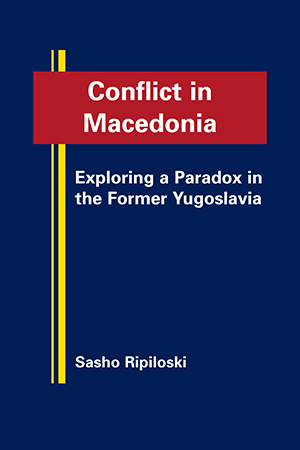
- 2011/298 pages
- A FirstForumPress Book
Conflict in Macedonia:
Exploring a Paradox in the Former Yugoslavia
Hardcover: $72.00
ISBN: 978-1-935049-31-9
How did Macedonia attain its status as the only Yugoslav republic to achieve a nonviolent transition to independence in the early 1990s? And why did the initial peace fail to endure?
Sasho Ripiloski traces Macedonia's peaceful extrication from the Yugoslav morass and then examines the new country's subsequent state-building efforts and offers an explanation for its later collapse into violence. He also assesses the broader theoretical implications stemming from the Macedonian experience. His work both advances our knowledge of this little-known country and sheds important new light on its role in Yugoslavia's fragmentation.





